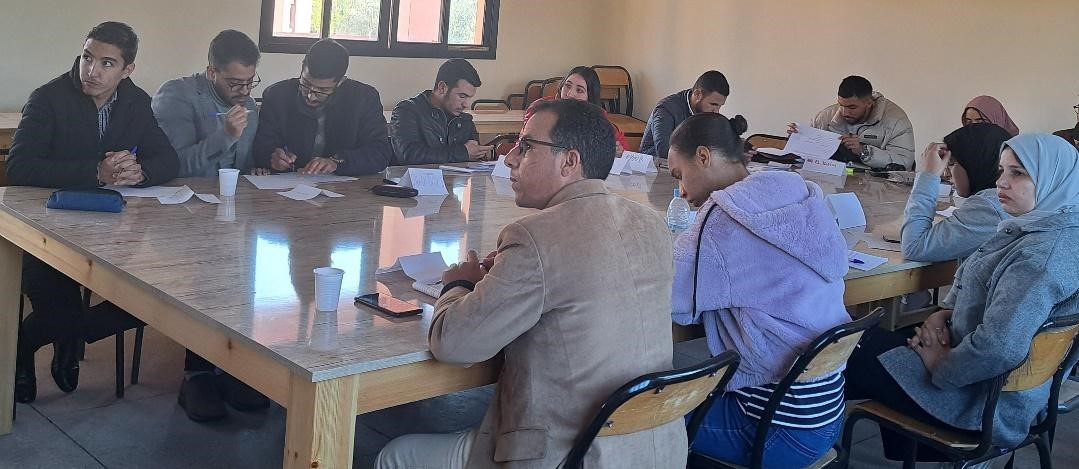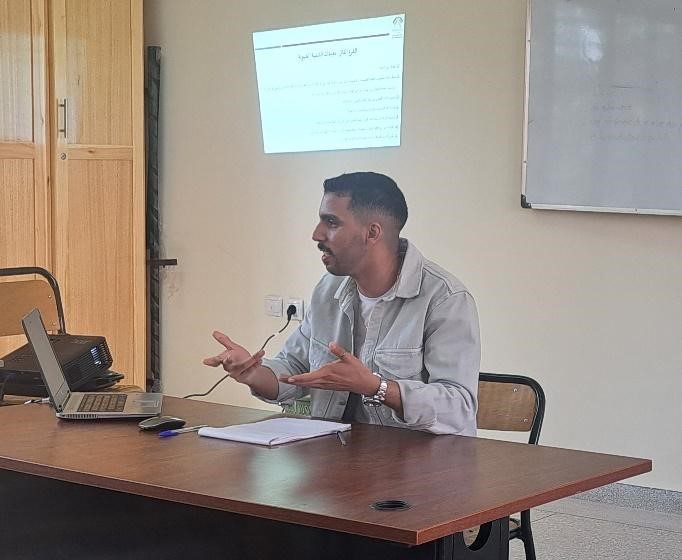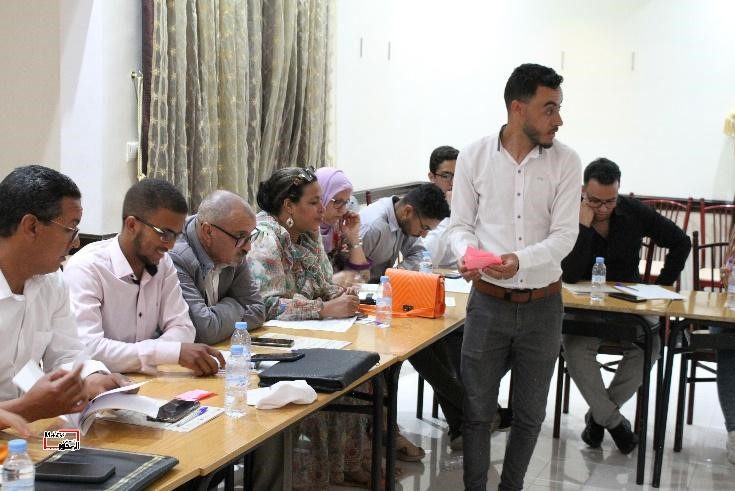By: Zarrouq Abdelkarim, Second-year Master of Administrative Law and Management Science at Cadi Ayyad University, and student of the legal clinic Marrakech.

Students of the legal clinic in English classes
Photo credit: Youssef Mazdou HAF Program Assistant
In March, Dávid, a volunteer, from the High Atlas Foundation (HAF) held an English lesson for students at the Legal Clinic for Studies and Research at the Faculty of Legal, Economic and Social Sciences at Cadi Ayyad University in Marrakech. The lesson was part of a partnership between HAF and the university, which is funded by the National Endowment for Democracy.
In the class, students read two texts, which were about two farmers, the first about Juanita Carlos and the second about Roman Michado. Apart from the fact that both were farmers, the two had another thing in common: they only received little pay for their hard, physical labor. This is a common issue for producers of raw materials in developing countries such as coffee or cocoa farmers. Their products are then shipped to industrialized countries, where they are processed and sold with high profit margins by big companies. While these companies make a lot of money, the farmers do not see any of it.
Fairtrade aims at changing that: Fairtrade is based on rules aimed at balancing the producer-consumer relationship between developed and developing countries. The International Fairtrade Certification Mark is an independent certification mark used in more than 50 countries, which appears on products as a stand-alone guarantee that the product was produced in compliance with the Fairtrade standards. The international Fairtrade Certification Mark is owned and protected by Fairtrade Labeling Organizations International (FLO) on behalf of its 25 affiliated member firms and labeling initiatives.
For a product to carry the Fairtrade Mark, it must come from certified producer organizations. The crops must be grown and harvested following the International Fairtrade Standards set by Fairtrade International.
Various types of products are labeled Fairtrade, some of them being coffee, bananas, cocoa, honey, flowers, sugar, tea, cotton, rice, sport balls, certain textiles and many more.
At the end of the lesson we also talked about the role of fair trade in raising the standard of living of farmers and ensuring fair shares of profits for them.





